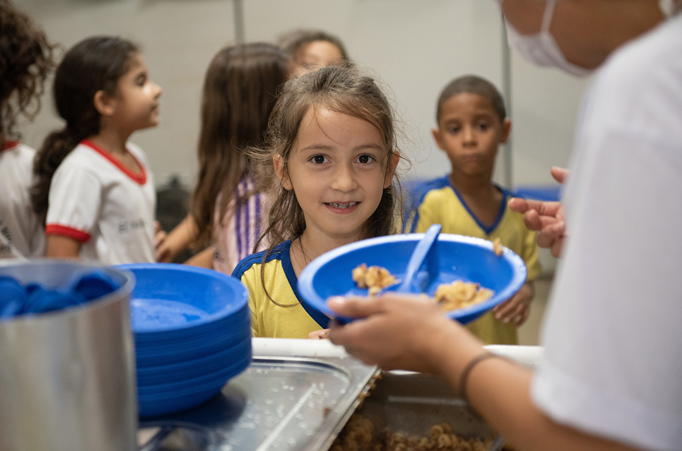
More than 39 billion in-school meals have been missed globally since the start of the COVID-19 pandemic due to school closures, according to a new report released on Thursday, 28th January, by the UNICEF Office of Research – Innocenti and the World Food Programme (WFP). COVID-19: Missing More Than a Classroom notes that 370 million children worldwide – many of whom are reliant on school meals as a key source of their daily nutrition – have missed 40 per cent of in-school meals, on average, since COVID-19 restrictions shuttered classrooms.
Latest estimates show that 24 million schoolchildren are at risk of dropping out of school due to the pandemic – reversing progress made in school enrolment in recent decades. School feeding programmes can provide incentives for the most vulnerable children to return to school. With that in mind, governments and school managers have been working to create and implement new guidelines to operate school feeding programmes under pandemic restrictions. Brazil, for example, has recently launched a Back to School Guide to Food and Nutrition Security, aimed at local managers. The guide (in Portuguese) may be accessed here.
“Missing out on nutritious school meals is jeopardizing the futures of millions of the world’s poorest children. We risk losing a whole generation,” said WFP Executive Director David Beasley. “We must support governments to safely reopen schools and start feeding these children again. For many, the nutritious meal they get in school is the only food they will receive all day.”
During the pandemic, there has been a 30 per cent overall reduction in the coverage of essential nutrition services including school feeding, micronutrient supplementation, and nutrition promotion programmes in low- and middle-income countries, as well as programmes for the treatment of severe malnutrition in children. During nationwide lockdowns in some countries, all school feeding programmes were cancelled.
Schools meals are not only vital in ensuring children’s nutrition, growth and development, they also provide a strong incentive for children – especially girls and those from the poorest and most marginalized communities – to return to school once restrictions are lifted. The longer children are out of school, the greater the risk that they will drop out of education altogether. Girls face the added risk of forced transactional sex or early marriage.
WFP has been supporting governments to adapt their school meals programmes during school closures. The report notes that more than 70 countries have delivered take-home rations, cash transfers or food vouchers, providing a valuable, interim solution for millions of children. In the first 9 months of 2020, more than 13 million schoolchildren received WFP school-based support as compared to 17.3 million the previous year.
Since the start of the pandemic, UNICEF has supported national governments to maintain the continuity of nutrition services for school-age children and adolescents. In 2020, nearly 25 million school-age children and adolescents benefitted from programmes for the prevention of anaemia. Tailored to context, most of these programmes combined nutrition education and counselling, supplementation with iron and other essential micronutrients and deworming prophylaxis.




